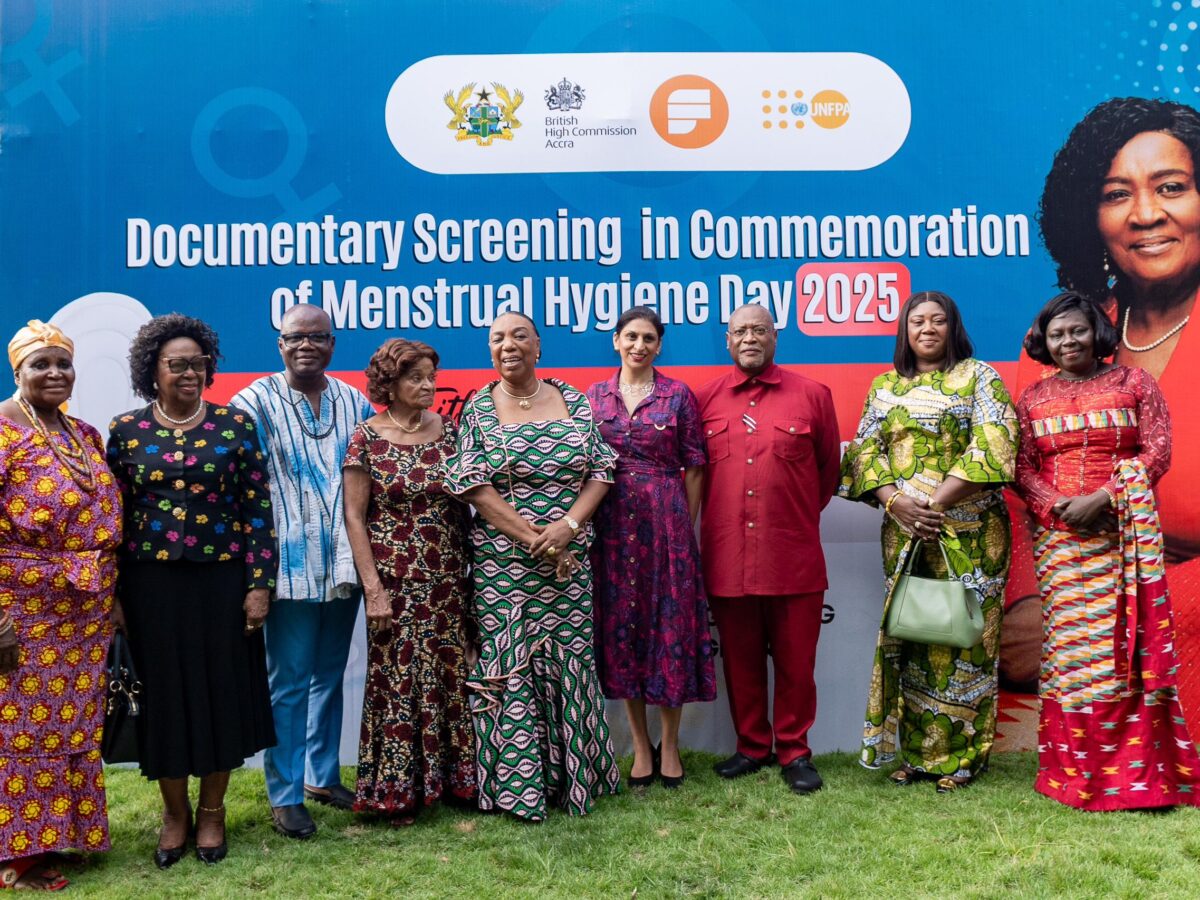By Stanley Kwabla Arku
As part of activities to commemorate Menstrual Hygiene Day, a special screening of the documentary “Barred by Blood – The Cultural Chains Holding Back Girls in Kyekyewere” was organised by the Office of the Vice President spotlighting the harsh realities many Ghanaian girls face during menstruation. The event was a powerful platform to highlight government efforts to break longstanding taboos and remove barriers to girls’ education through the Free Sanitary Pad Initiative.
The screening drew a cross-section of dignitaries, development partners, civil society leaders, and community members, united in their resolve to tackle menstrual inequality in Ghana. Delivering the keynote address on behalf of the Vice President of the Republic, Professor Naana Jane Opoku-Agyeman, Madam Betty Mould-Iddrisu reaffirmed the government’s commitment to menstrual health as a key part of its education and gender equity agenda.

“Far too many girls in Ghana are being held back, not by lack of potential, but by stigma, silence, and systems that fail to support their basic biological needs,” Madam Mould-Iddrisu said. “The Free Sanitary Pads Programme is one of the boldest responses to this injustice.”
Government’s Free Sanitary Pads Programme, described as one of the most extensive in the country’s history, seeks to ensure that no girl is forced to stay out of school because of her period. Launched by government, the initiative will provid free sanitary pads to girls in basic and secondary schools, alongside menstrual hygiene education and improved Water, Sanitation, and Hygiene infrastructure.
Kyekyewere, a rural community Central Region highlighted in the documentary, has emerged as a national case study in both the challenges girls face and the progress being made. The film documents how cultural taboos and a lack of menstrual products have kept many girls out of school. Yet, it also showcases growing local efforts, supported by traditional leaders and national policy to transform mindsets and support girls’ education.

“Our approach is based on three pillars,” Madam Mould-Iddrisu explained. “Access, through the distribution of free pads; awareness, by breaking the silence around menstruation; and empowerment, by helping girls manage their periods with dignity and confidence.”
Community engagement has been key to the programme’s early successes. Traditional leaders in Kyekyewere and similar communities are increasingly partnering with the government to challenge outdated cultural norms that treat menstruation as taboo. Their involvement, combined with donor support and civil society advocacy, is helping to shift attitudes and drive sustainable change.


